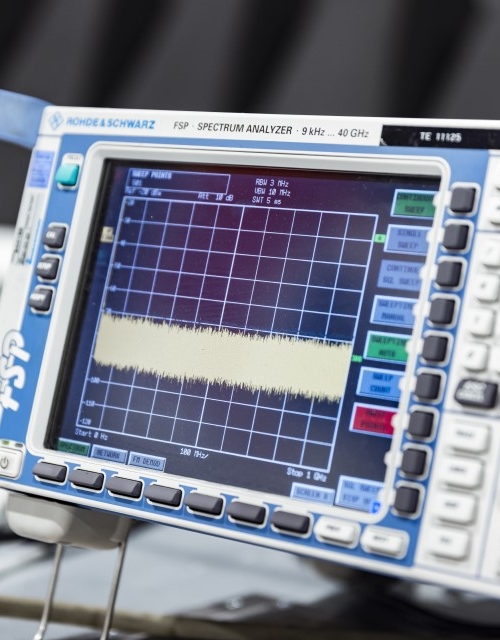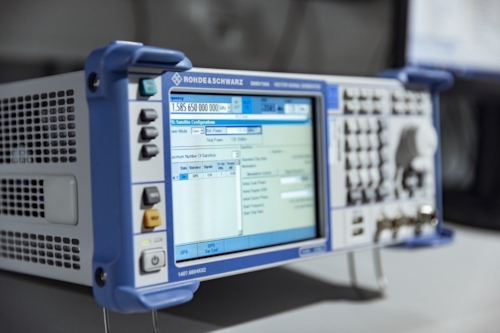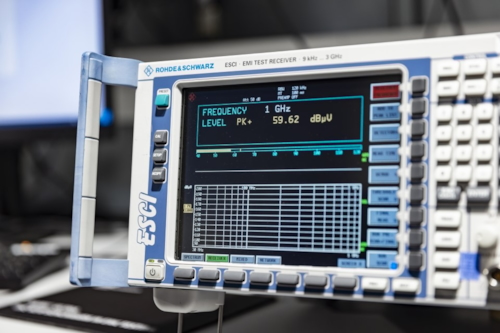
USA FCC certification and testing services
Receive a quote tailored to your needs
The United States has required standards for products that might contribute to electromagnetic interference in order to reduce the level of radio frequency (RF) interference between electronic devices. In general each electronic product, both with and without wireless functionality, placed on the US market must comply with the Federal Communications Commission (FCC) regulations, in order to be sold. Also if products are equipped with an already certified radio module, the end-product, as a whole, must comply with the FCC regulations as well.
FCC and smart devices
In the last decade more and more products have become ‘smart’. Mostly via wireless data communication these products communicate with each other or over the internet. Smart devices vary from residential products such as refrigerators and coffee machines to industrial equipment such as measurement devices or regulators. Al these devices have to comply with applicable FCC regulation. Kiwa can help manufacturers and suppliers of smart products to comply with regulations and thus gain quick access to the US market.
What is the FCC?
In the interest of the US public, the FCC regulates the private sector telecommunications industry. It establishes technical regulations for transmitters and other equipment to minimize their potential for causing interference to radio services. To enable this, the FCC administers an authorization program ensuring equipment placed on the US market complies with the technical requirements
FCC categories
FCC standards depend on the type of radio frequency emitting device that is being tested. The FCC distinguishes different product categories that identify what type of regulations and testing are necessary: for example: FCC Part 11, FCC Part 15, Part 18, Part 22, Part 24, Part 68, Part 90 and FCC Part 95. One of the most common types of device approval is for FCC part 15 certification, which refers to regulations set for most IoT equipment such as, smart doorbells, consumer remote controls and power tools.
FCC authorization process
The FCC equipment authorization procedure is as follows. In some cases a different route can be used e.g. the sDoc route. For more information contact us:
Equipment authorization
FCC certification is an equipment authorization, using a third-party FCC-recognized Telecommunication Certification Body (TCB), based on an evaluation of supporting documentation and test data contained in an application submitted by the responsible party (e.g., the manufacturer or importer) to the TCB.
Compliance testing
Compliance testing for certification is performed by an FCC-recognized accredited testing laboratory. Technical parameters and descriptive information for all certified equipment is posted on a Commission-maintained public database
Technical standards
In order to receive FCC certification, equipment must comply with the appropriate technical standards. They must undergo testing in an accredited laboratory in order to make sure that it not compromises the safety of the American public or interfere with other electronic products.
FCC Identifier
For certification, the product has to bear a nameplate or label with the FCC Identifier (FCC ID), as defined in Section 2.925.13 The FCC ID must always be accessible when using the product. The placement of the FCC ID must be a physical label on the product, unless an e-label is used.
FCC testing by Kiwa
Kiwa’s is equipped with start-of-the-art test facilities and is an FCC recognized accredited testing laboratory. We test the electromagnetic compatibility (EMC) and wireless data communication aspects of a wide range of electronic devices. We are able to perform tests according to different FCC rule parts such as Part 15, 18, 22, 24 & 27. Under these parts technologies such as Bluetooth, Wi-Fi, Zigbee, cellular and consumer ISM equipment can be tested.
Testing procedure
In order to test your product our test laboratory must be able to do the following:
- Control the radio (module);
- Adjust TX Frequency, L, M and H (modulated and unmodulated);
- Adjust TX Power (preferrable);
- Must be able to be set in RX Only mode (must be able to operate in Idle mode and with notification of reception).
Sample requirements
- At least 2 samples are needed for EMC and RF measurements;
- One worst-case sample (incl. all cables, options etc.);
- One sample must be able to be put in test mode;
- (extra) Conducted sample is preferred (pigtail, u.FL connector etc.).
FCC Certification by Kiwa
Kiwa is a FCC recognized Telecommunication Certification Body (TCB). We will check your technical construction file incl. test reports, documentation such as manuals and drawings and your declaration of conformity. If it is all in line with the FCC regulations, Kiwa can issue an FCC certification for your product. In order to issue an FCC certificate a manufacturer or importer must be listed in the FCC database. They must have an FCC FRN number and grantee code. Kiwa can help you to get this FRN number and Grantee code.
ISED (Canada) certification and testing services
In Canada electronic devices that may cause electromagnetic interference must comply with Innovation Science and Economic Development (ISED) regulations. Kiwa is an ISED recognized certification body. We can test and assess products, check technical construction files and test reports. If it is all in line with ISED regulations, Kiwa can issue an ISED certification for your product.

Japan MIC Certification and Testing
In order to be admitted to the Japanese market, specified radio equipment such as cellular phones, wireless LAN products and business purpose radio products are required to conform to the technical standards regulated by the Japanese Ministry of Internal Affairs and Communications (MIC). As a registered MIC certification body Kiwa provides professional and independent MIC testing and certification services.

EU Radio Equipment Directive (RED) Certification and Testing
In the last decade more and more products, from doorbells to refrigerators, have become ‘smart’. Mostly via wireless data communication these products communicate with each other or over the internet. Each product placed on the European market that contains some sort of wireless connectivity or (already certified) radio component must comply with the Radio Equipment Directive (2014/53/EU) (RED).

Sign up for our newsletter
Make sure you are always up to date with the latest news and developments by signing up for our newsletter about cyber security!
Cyber security
Your valuable data must be secured. Kiwa’s data security experts and auditors can help you with this.